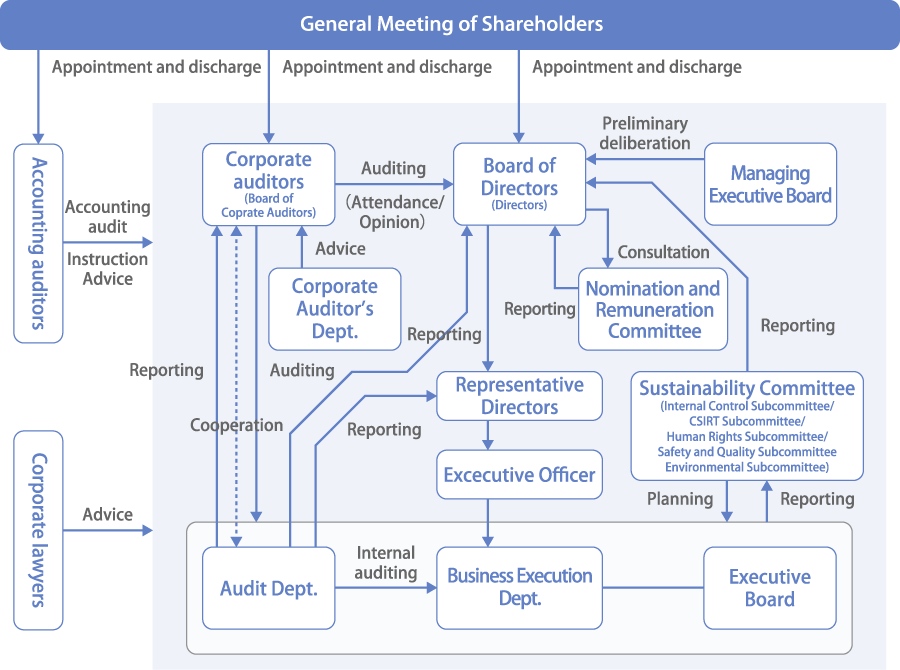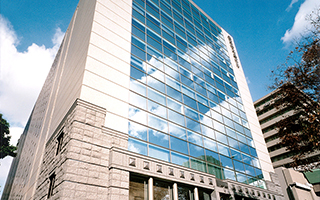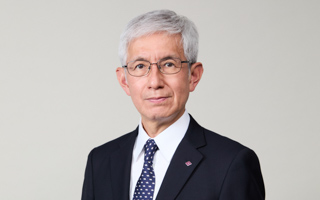Corporate Governance
Sumitomo Warehouse positions corporate governance as a key management issue for ensuring discipline of the Company and enhancing its corporate value.
Basic Approaches
The Company will engage in further strengthening and enhancing corporate governance by placing emphasis on ensuring respect for and equality of shareholders’ interests, appropriate collaboration with stakeholders other than shareholders (customers, business partners, creditors, local communities and employees, etc.), appropriate disclosure and constructive dialog with shareholders, appropriate execution of the roles and responsibilities of the board of directors and highly effective supervision of the execution of business.
Corporate Governance Structure
The Company has adopted a corporate auditors system, and its corporate management organizations are the Board of Directors, the Board of Corporate Auditors, the Managing Executive Board and the Executive Board. The execution of business based on the decisions of the corporate management organizations is efficiently implemented by executive offices responsible for roles based on resolutions of the Board of Directors in accordance with executive procedures specified in internal rules. Furthermore, a Nomination and Remuneration Committee has been established as a voluntary advisory body to the Board of Directors to increase the objectivity and transparency of nomination and remuneration decision-making procedures such as the nomination and remuneration of directors and corporate auditors.
Board of Directors
The Board of Directors makes important decisions related to the execution of business and supervises the execution of duties of each director. It is made up of a small number of directors due to the introduction of an executive officer system for the purpose of making swift and flexible decisions. The Board of Directors is chaired by the President, and generally holds meetings once per month.
The Company increased the number of outside directors from one to two in 2015 to strengthen management oversight functions and corporate governance. Furthermore, the term of directors was changed from two years to one year to further clarify the responsibility of directors and create a management system able to swiftly respond to changes in the management environment.
The Company performs analysis and evaluation of the effectiveness of the Board of Directors once per year, and reports the results to the Board of Directors.
Board of Corporate Auditors
The Board of Corporate Auditors decides on auditing policies, auditing plans, auditing methods and other matters related to the execution of duties of by corporate auditors, in addition to conducting discussion and making decisions based on reports about important matters related to auditing.
In order to further strengthen auditing functions related to management, the Company has adopted a system of three outside corporate auditors and two full-time corporate auditors.
Managing Executive Board
To further improve the efficiency of decision making, the Managing Executive Board considers matters to be submitted to the Board of Directors in advance, and also deliberates other important management matters. It is made up of managing executive officers and higher, and generally holds meetings twice per month.
Nomination and Remuneration Committee
The Nomination and Remuneration Committee will deliberate matters related to the nomination and remuneration of directors and corporate auditors in accordance with consultation from the Board of Directors, and return the results to the Board of Directors. It is composed of the President and outside directors, and the three members are the President and two outside directors, with outside directors making up a majority of the members.
Executive Board
The Executive Board shares important matters to be submitted to the Board of Directors and exchanges opinions on important matters related to the execution of business. In addition to executive officers, it is made up of department managers who are not executive officers, branch managers and full-time corporate auditors, and it generally holds meetings once per month.
Corporate Governance Structure Diagram

Outside Officers
The Company appoints multiple independent outside directors to further strengthen the management oversight of the Board of Directors’ decisions and the execution of business by directors, and also appoints independent outside corporate auditors to further strengthen the functions of corporate auditors.
The Company has appointed two outside directors and three outside corporate auditors as outside officers. The appointment of directors and corporate auditors is conditional upon meeting the standards for externality and independence set forth in the Companies Act, etc., and also having the deep insight and expertise required for overseeing and auditing the Company’s management.
Efforts are made to ensure active discussion such as distributing materials to be submitted to the Board of Directors to outside directors in advance. Furthermore, apart from the Board of Directors, meetings to exchange opinions between the President and outside officers are held as needed to frankly exchange opinions on general management issues faced by the Group.
Officer Remuneration
The Company has established policies on the remuneration of inside directors, outside directors and corporate auditors.
The remuneration system for inside directors includes monetary remuneration made up of fixed remuneration and part based on performance, and a restricted share based remuneration system has also been introduced for the purpose of further increasing the motivation of directors to increase medium- to long-term corporate value and quickly realizing the sharing of value with shareholders through holding of shares while in office.
The remuneration system for outside directors is made up of only fixed monetary remuneration and remuneration is determined based on comprehensive consideration of factors such as the management environment and economic conditions.
The remuneration system for corporate auditors is made up of only fixed monetary remuneration and remuneration is determined based on deliberation by corporate auditors.
Prior to matters related to the remuneration of directors, etc. being deliberated in the Board of Directors, drafts of such matters are deliberated in the Nomination and Remuneration Committee and the results thereof are returned to the Board of Directors.
Auditing
Auditing by Corporate Auditors
The Board of Corporate Auditors is made up of two full-time corporate auditors and three outside corporate auditors, and auditing by corporate auditors is conducted by the Board of Corporate Auditors. Furthermore, the Corporate Auditor’s Department has been established as an organization for providing operational assistance to corporate auditors and conducting administration related to the operation of the Board of Corporate Auditors, and dedicated personnel have been assigned.
Corporate auditors attend meetings of the Board of Directors, audit the decisions and execution of business by directors, and express opinions as needed. The corporate auditors periodically exchange opinions with the accounting auditors such as receiving explanations on auditing plans at the start of the fiscal year, conducting hearings on the state of auditing during the fiscal year and receiving reports on audit results at the end of the fiscal year. Full-time corporate auditors attend meetings of the Board of Directors in addition to important meetings related to management of the Company, check the progress and results of important matters, place importance on the state of establishment and operation of internal control systems, and conduct operational audits on the head office, key business locations and affiliates in Japan and overseas.
Furthermore, they closely coordinate with the Audit Department, which conducts internal audits, and maintain communication such as seeking explanations from the Finance & Accounting Department and the General Affairs Department as needed.
Internal Audits
The Company has established an Audit Department as an organization in charge of internal auditing of general corporate operations, internal controls and matters related to the auditing thereof. The department is made up of two sections: the Internal Audit Section and the Internal Control Section.
The Internal Audit Section that conducts internal audits performs inspections and reviews of general operations of the Company such as compliance with relevant laws and regulations and internal rules, conformance with the basics of business execution and agreements, and the state of workplace management, and demand corrective action to be taken when necessary. It also coordinates with corporate auditors, the Finance & Accounting Department and the General Affairs Department in an effort to further strengthen internal control.
The Internal Control Section audits internal controls concerning matters related to risk management of the Company and its major subsidiaries.
Accounting Auditors
KPMG AZSA LLC serves as the Company’s accounting auditors.
To ensure appropriate auditing by the accounting auditors, the Board of Corporate Auditors has stipulated standards for the reappointment of accounting auditors based on perspectives such as audit quality, independence, expertise as professionals, and effectiveness and efficiency of auditing. Corporate auditors determine whether or not accounting auditors are to be reappointed by exchanging opinions with accounting auditors on the annual planning and implementation of accounting audits, receiving periodic reports and explanations from the accounting auditors on the state of implementation of audits and matters related to audit quality, and exchanging opinions as needed.














